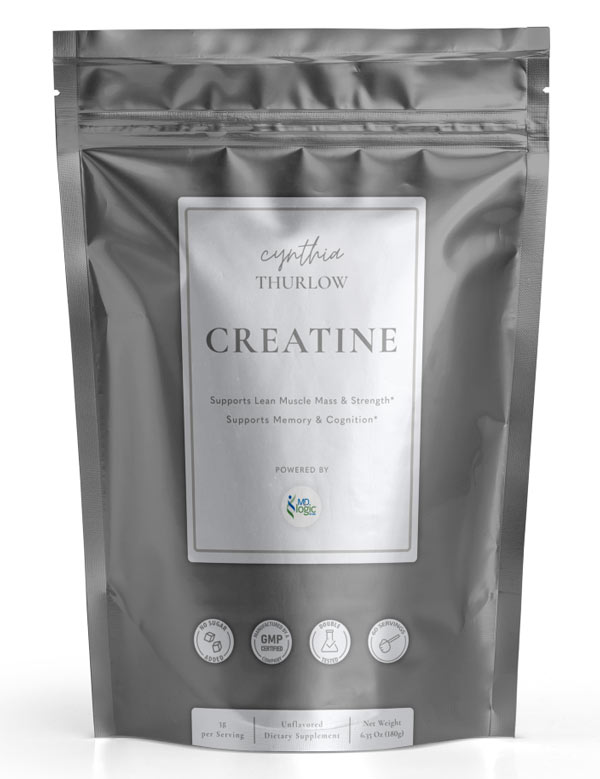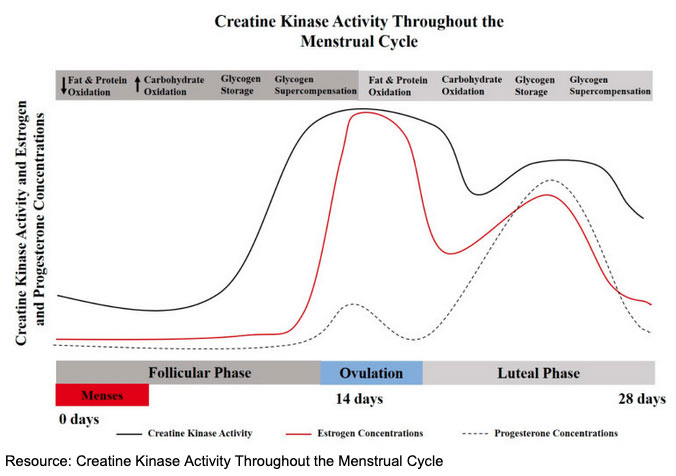Creatine Education
Explore what Creatine can do for you. A vital compound for energy in muscles and brain. Learn about deficiency symptoms, supplement benefits and more!
Creatine Education

What is Creatine?
Creatine is a naturally occurring compound found in the muscles and brain. It is an amino acid that plays a crucial role in energy production, particularly under high energy demand conditions like intense physical or mental activity. While creatine is naturally produced (mainly in the liver) from amino acids such as arginine, glycine, and methionine, its production can decrease with age.
Symptoms of Creatine Deficiency
Muscle Weakness
Fatigue
Brain Fog/Poor Concentration
Poor Memory
Gastrointestinal Problems
Benefits of Creatine Supplementation
Strength and Power Output: Creatine is highly effective in increasing strength and power output during resistance exercise by enabling higher exercise intensity.
Lean Mass Increase: Alongside resistance exercise, creatine supplementation can support muscle growth.
Cognitive Benefits: Creatine can reduce mental fatigue, especially in situations involving sleep deprivation or exhaustive exercise, and enhance memory and mood, particularly in individuals with lower creatine levels like vegetarians and older adults.
Exercise Recovery: Creatine can help reduce muscle damage caused by intense exercise. This reduction in damage can accelerate recovery and enhance overall exercise performance.
Improvement in Bone Health: Creatine can support better bone health both directly and indirectly by strengthening muscles.
Blood Sugar Control: Creatine may contribute to improved blood sugar control. This effect is particularly relevant for individuals engaging in regular exercise, as the combination of physical activity and creatine supplementation may enhance the muscle’s ability to use glucose.


Aging/Perimenopause/Menopause
As women age, especially during perimenopause and menopause, they experience decreases in estrogen. This decline can lead to the loss of bone strength (osteoporosis), muscle mass (sarcopenia), and strength (dynapenia), as well as increased inflammation and oxidative stress.
Creatine supplementation can be a valuable countermeasure to these middle age decreases in muscle, bone strength, and muscle protein synthesis, especially when combined with strength training.
Creatine supplementation could help improve energy levels, mood, and brain function during phases of the menstrual cycle when these are typically impaired.
Why Women Need Creatine
Women naturally have 70-80% lower endogenous creatine stores compared to men. This difference is attributed to variations in muscle mass and hormonal differences. Here are a few reasons why women should consider creatine supplementation.
Muscle Mass
For many women, increasing muscle mass sounds scary but women should not be afraid of gaining muscle because muscle is metabolically active tissue that helps burn calories and improve overall metabolic health.
Menstrual Cycle
The menstrual cycle involves significant fluctuations in hormones, particularly estrogen and progesterone. Research has shown that these changes can influence muscle function and energy metabolism, including creatine homeostasis.
Frequently Asked Questions (FAQ’s)
- Is creatine safe for long-term use?
- Creatine has been extensively researched and is generally considered safe for long-term use in healthy individuals.
- Can creatine cause kidney damage?
- There is no substantial evidence that creatine causes kidney damage in healthy individuals, but those with pre-existing kidney conditions should consult a healthcare professional before use.
- Does creatine cause weight gain?
- Creatine does cause your muscles to store more water which can impact scale weight but this is typically marginal, temporary, and is not a result of fat storage.
- Does creatine cause hair loss?
- There is no definitive evidence linking creatine to hair loss. This is a common misconception with limited scientific backing.
- Can vegetarians and vegans take creatine?
- Yes, vegetarians and vegans SHOULD take creatine supplements since their natural creatine levels might be lower due to dietary restrictions.
- Is creatine only for athletes?
- While athletes commonly use creatine for improving physical performance, it can also benefit non-athletes, especially in cognitive functions and overall health.
